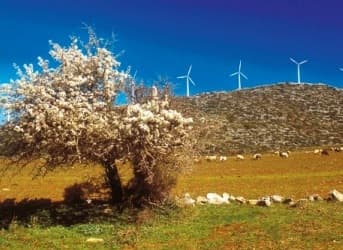On 7 March the government of Australian Prime Minister Julia Gillard said that Sydney would house the country’s new Clean Energy Finance Corp., announced in 2011 as part of the country’s carbon pricing package. In choosing Sydney Gillard said, ''This is a city that can offer the benefit of financial and professional networks. Our Treasury tells us we will see $100 billion of new investment into renewable energy between now and 2050. So the Clean Energy Finance Corporation is going to be a part of making sure that we realise the clean energy future, that we use our abundant sunshine, our tidal power, our wind power and our other sources of clean energy. Overwhelmingly, our nation wants to act on climate change, but some worry it won't be good for us if we get out in front of the world. They don't have to worry because the world is moving, too. We want to stay in step with the world."
The corporation, with $2 billion in Treasury startup funds, is to make investments in businesses that want to bring to market clean energy technologies and will help build partnerships between lenders and investors.
New South Wales Premier Barry O'Farrell, who has been a strident critic of Ms Gillard's carbon tax nonetheless has happily welcomed the Gillard government's decision to house the CEFC in Sydney, telling reporters, "This is good news whatever way you look at it."
Quite a turnaround for O’Farrell, a vociferous opponent of the carbon tax, which he has argued would damage the NSW economy, with the NSW government last year claiming that it would cost billions of dollars in lost revenue and thousands of jobs.
Not surprisingly, the whole concept has stirred up a firestorm of controversy. Australia’s leading independent public policy think tank, the New South Wales-based Center for Independent Studies on 1 March published a study on the CEFC by Research Fellow Oliver Hartwich. Hartwich takes no prisoners in his review, writing, “The federal government’s plans to establish a Clean Energy Finance Corporation (CEFC) should be scrapped. As a commercially oriented company, it competes with private investors. As a company with a public mandate, it nevertheless aims to serve a public policy goal. These dual purposes are hard to reconcile. However, its place under an emissions trading framework is even more problematic. As a carbon emissions trading scheme sets a ceiling on overall emissions, the CEFC will not achieve any additional emissions cuts but only result in lower prices for emissions certificates. $10bn of public funding will thus yield a zero emissions effect.”
Ouch!
And how does Australia’s mining community feel about the CEFC? Last month the Australian Industry Greenhouse Network, whose members account for more than 90 percent of Australia’s mining, manufacturing and energy emissions took an economic tack for their criticism, stating that the CEFC should prove that there was any market failure in the finance industry “that is leading to the claimed economically inefficient levels of private investment in reducing emissions, and in clean energy supply and demand,” an important issue not only for directing CEFC’s investment strategy “but, perhaps even more importantly, for providing transparency to the emissions, energy and manufacturing markets that could be influenced whenever the Corporation decides to make an investment. The AIGN looks forward to a compelling statement on market failures to be addressed by the CEFC and rigorous evidence of the claimed economically inefficient levels of private investment in reducing emissions, and in clean energy supply and demand.”
And the Opposition? Just hours after yesterday's press conference, the federal shadow treasurer, Joe Hockey, restated the Coalition's intention to abolish the carbon tax, and with it the CEFC, telling reporters, “The Coalition will make it a first priority to rid Australia of this… economically destructive tax.”
The government is awaiting recommendations from an expert committee, due this month, before it finalizes the design of the CEFC. Should be interesting, especially as the carbon tax is due to take effect from 1 July.
ADVERTISEMENT
By. John C.K. Daly of Oilprice.com


















